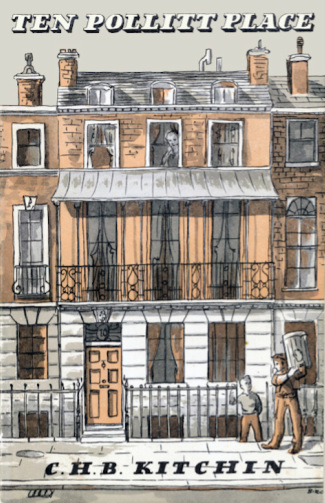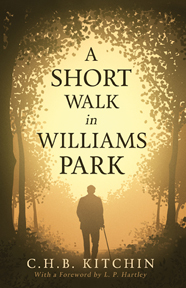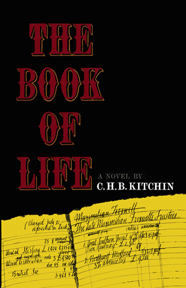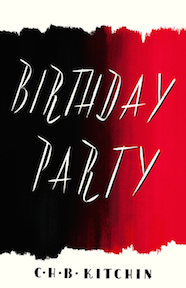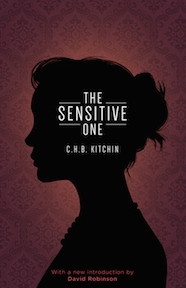|
BOOK DETAILS
Trade paper ISBN-13: 978-1939140258 List Price: $17.99 U.S. Pages: 220 Published: 2013 |
Ten Pollitt Place (1957)
C.H.B. Kitchin With a new introduction by Simon Stern Book Description
‘Before the end of this year someone in this house is going to die.’ This is the terrible prophecy of fifteen-year-old Hugo, who possesses an uncanny gift of second sight. But who will it be? Maybe old Miss Tredennick, seventy-six, whose outrage at the prostitute across the street could bring on a stroke. Or perhaps aging novelist Justin Bray, once popular, but increasingly ignored by critics and booksellers. Then there are the Fawleys, trapped in a loveless marriage that Mr Fawley wants to escape so he can marry the housekeeper, Magda. Or could it be Hugo himself, the disabled boy with an unrequited passion for the man who collects the garbage? As year’s end approaches and each character’s personal tragedy unfolds, tensions are high at Ten Pollitt Place, while everyone wonders which of them may not live to see the new year. . . . An unjustly neglected novelist, C.H.B. Kitchin (1895-1967) was best known for his early mystery novels and was frustrated later in life when he continued to turn out minor masterpieces like Ten Pollitt Place (1957) and The Book of Life (1960), which were largely overlooked by critics and the book-buying public. This first-ever reprinting of Kitchin’s brilliant novel includes a new introduction by Simon Stern and reproduces the original jacket art by Val Biro. |
reviews
‘Mr Kitchin is an enjoyably ruthless writer.’ - Punch
‘Ten Pollitt Place is written in another language. It is another world. . . . [T]he observation is delightful. It is beautifully done.’ - The Observer
‘Mr Kitchin is still writing the traditional, well-bred, upper-English-middle-class novel. He does it finely, with a loving art.’ - The Spectator
‘Ten Pollitt Place is written in another language. It is another world. . . . [T]he observation is delightful. It is beautifully done.’ - The Observer
‘Mr Kitchin is still writing the traditional, well-bred, upper-English-middle-class novel. He does it finely, with a loving art.’ - The Spectator
ALSO AVAILABLE THROUGH ONLINE RETAILERS
MORE TITLES BY THIS AUTHOR
AUTHOR BIOGRAPHY
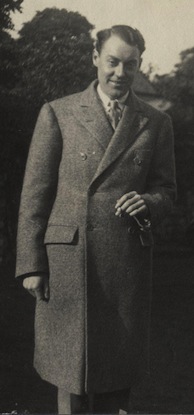
C.H.B. (Clifford Henry Benn) Kitchin was born in Yorkshire in 1895. He attended Exeter College, Oxford, and published his first book, a collection of poems, in 1919. His first novel, Streamers Waving, appeared in 1925, and he scored his first success with the mystery novel Death of My Aunt (1929), which has been frequently reprinted and translated into a number of foreign languages.
Kitchin was a man of many interests and talents, being called to the bar in 1924 and later amassing a small fortune in the stock market. He was also, at various times, a farmer and a schoolmaster, and his many talents included playing the piano, chess, and bridge. He was also an avid collector of antiques and objets d'art.
Kitchin was a lifelong friend of L. P. Hartley, with whose works Kitchin’s were often compared, and was also a friend and mentor to Francis King, who later acted as Kitchin’s literary executor. In his introduction to the Valancourt edition of Kitchin’s The Book of Life, King recalls meeting Kitchin after the two wrote fan letters to one another in 1958 that crossed in the mail: King had written in praise of Ten Pollitt Place, while Kitchin’s letter had expressed admiration for the younger novelist’s The Man on the Rock (1957). King wrote, ‘[B]y the time that I met him, his fate was that of many elderly, once famous writers in England. Instead of lead reviews, he now got two or three paragraphs at the bottom of a page. Increasingly critics would apply the dread word “veteran” to him, much to his annoyance.’ This frustration is echoed in his novel Ten Pollitt Place, where Kitchin portrays himself in the character of the aging novelist Justin Bray.
Kitchin, who was gay, lived with his partner Clive Preen, an accountant, from 1930 until Preen’s death in 1944. C.H.B. Kitchin died in 1967.
Kitchin was a man of many interests and talents, being called to the bar in 1924 and later amassing a small fortune in the stock market. He was also, at various times, a farmer and a schoolmaster, and his many talents included playing the piano, chess, and bridge. He was also an avid collector of antiques and objets d'art.
Kitchin was a lifelong friend of L. P. Hartley, with whose works Kitchin’s were often compared, and was also a friend and mentor to Francis King, who later acted as Kitchin’s literary executor. In his introduction to the Valancourt edition of Kitchin’s The Book of Life, King recalls meeting Kitchin after the two wrote fan letters to one another in 1958 that crossed in the mail: King had written in praise of Ten Pollitt Place, while Kitchin’s letter had expressed admiration for the younger novelist’s The Man on the Rock (1957). King wrote, ‘[B]y the time that I met him, his fate was that of many elderly, once famous writers in England. Instead of lead reviews, he now got two or three paragraphs at the bottom of a page. Increasingly critics would apply the dread word “veteran” to him, much to his annoyance.’ This frustration is echoed in his novel Ten Pollitt Place, where Kitchin portrays himself in the character of the aging novelist Justin Bray.
Kitchin, who was gay, lived with his partner Clive Preen, an accountant, from 1930 until Preen’s death in 1944. C.H.B. Kitchin died in 1967.

